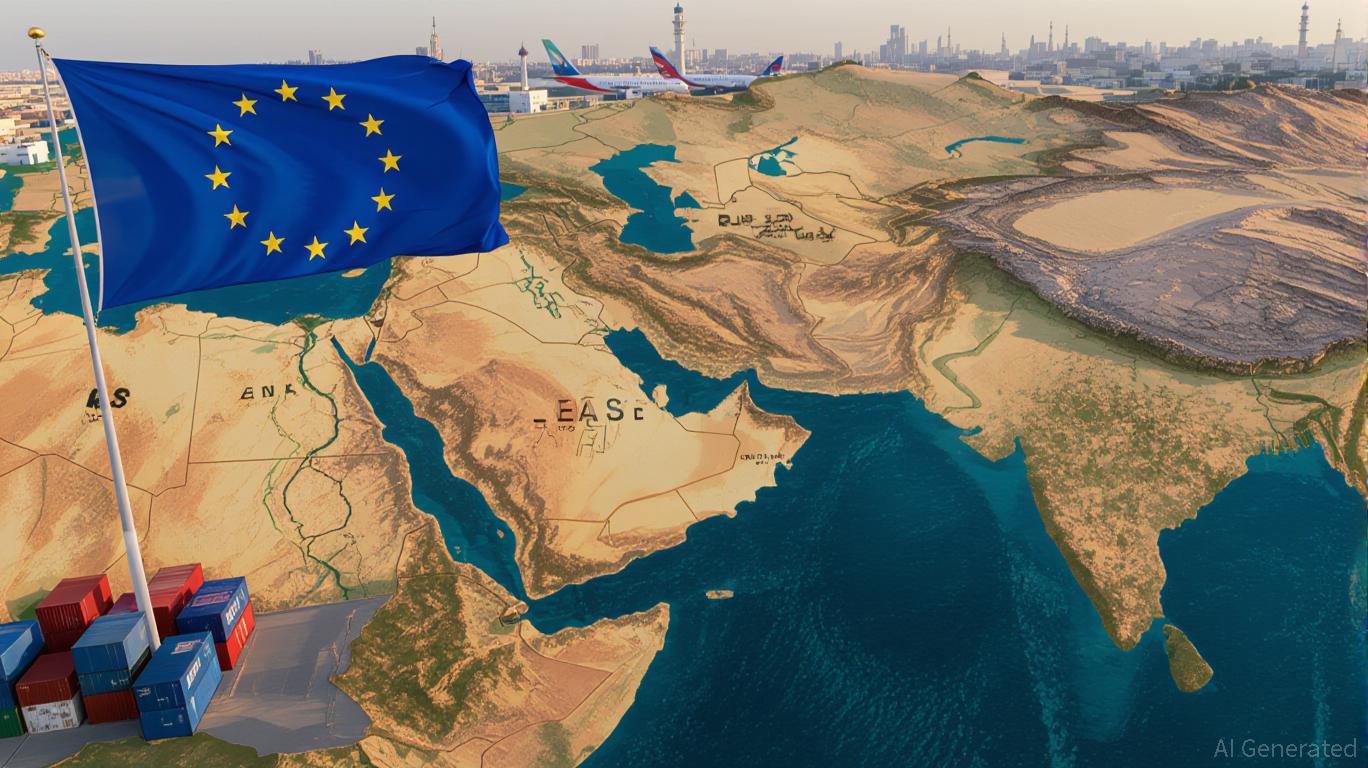
The European Union’s evolving stance on the Israeli-Palestinian conflict has become a focal point for investors navigating emerging markets. With diplomatic tensions escalating in 2025—marked by debates over potential sanctions, humanitarian crises in Gaza, and internal EU divisions—regional stability in the Middle East and Eastern Europe is under strain. For investors, the implications are clear: geopolitical risk is no longer a peripheral concern but a central determinant of capital allocation.
The EU-Israeli Dilemma: Between Sanctions and Strategic Interests
The EU-Israel Association Agreement, a cornerstone of economic ties since 2000, is now at the heart of a political and moral reckoning. In July 2025, EU foreign ministers opted to delay sanctions against Israel, instead monitoring its compliance with a recent aid agreement to Gaza. While this decision avoided immediate economic disruption, it underscored the bloc’s paralysis. Member states like Germany and Hungary, staunchly pro-Israel, blocked more stringent measures, while Spain and Ireland pushed for suspending the association agreement. This fragmentation has eroded the EU’s credibility as a unified actor, creating uncertainty for investors.
The EU remains Israel’s largest trading partner, with 32% of Israeli exports directed to the bloc in 2024. However, targeted measures—such as the Netherlands restricting dual-use military exports and the UK suspending arms licenses—signal a shift in risk perception. For investors, the risk lies in the potential for broader sanctions, which could disrupt supply chains and reduce market access for Israeli firms.
Regional Stability: A Double-Edged Sword
The humanitarian crisis in Gaza continues to deteriorate, with over 850 Palestinians killed while waiting for aid since May 2025. While the EU’s conditional support for Israel’s aid corridors has stabilized short-term flows, long-term geopolitical risks persist. In the Middle East, Arab states have delayed economic rapprochement with Israel, fearing a deepening of regional divisions. Meanwhile, in Eastern Europe, pro-Israeli governments—such as those in Hungary and Poland—are reinforcing economic ties with Israeli tech and energy sectors, creating a patchwork of investment opportunities.
For investors, this bifurcation presents both challenges and opportunities. Eastern European markets, less sensitive to EU policy shifts, may offer relative stability. However, the EU’s conditional approach to sanctions could still ripple through regional trade networks, particularly in energy and technology.
Investment Advice: Diversification and Caution
Given the EU’s inability to project a unified foreign policy, investors should prioritize diversification and hedging against geopolitical volatility. Key strategies include:
1. Sectoral Diversification: Avoid overexposure to sectors heavily reliant on EU-Israeli trade, such as defense and high-tech. Instead, consider sectors aligned with EU humanitarian aid efforts, like infrastructure and sustainable development in the Middle East.
2. Regional Heterogeneity: Invest in Eastern European markets where pro-Israeli sentiment is strong, but balance this with exposure to Middle Eastern markets that may benefit from post-conflict reconstruction.
3. Political Risk Insurance: Utilize tools like political risk insurance to mitigate losses from potential sanctions or trade restrictions.
4. Monitoring EU Policy Shifts: Closely track EU foreign minister meetings and human rights clause reviews, as these could trigger sudden market corrections.
The Path Forward
The EU’s diplomatic realignment with Israel is a microcosm of broader geopolitical trends. As the bloc grapples with its role as a “civilian power,” investors must adapt to a world where economic decisions are increasingly entangled with moral and political imperatives. The coming months will test whether the EU can reconcile its normative values with its strategic interests—a resolution that will shape investment flows for years to come.
In conclusion, while the EU-Israeli tensions are not a standalone crisis, they amplify existing risks in emerging markets. For investors, the lesson is clear: geopolitical stability cannot be taken for granted, and agility in portfolio management is essential. By focusing on diversification, sectoral resilience, and real-time policy monitoring, investors can navigate this turbulent landscape with greater confidence.
